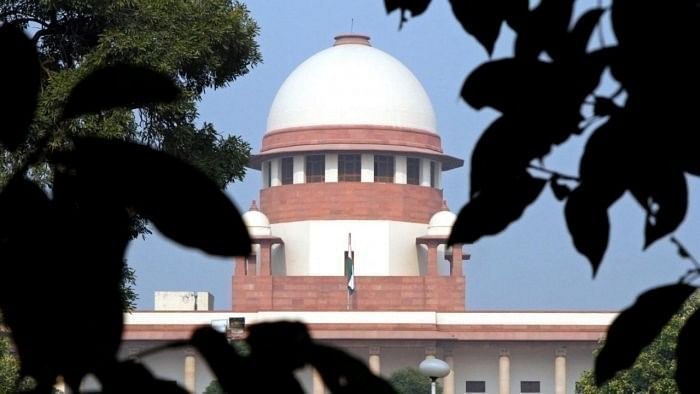
The Supreme Court of India.
Credit: PTI File Photo
New Delhi: The Supreme Court on Tuesday said a judge has to decide and not preach as it set aside the Calcutta High Court's judgment which set free a man in a sexual assault case of a minor girl, and made "objectionable" observations advising adolescent girls to "control sexual urge".
A bench of Justices Abhay S Oka and Ujjal Bhuyan also issued guidelines for the judges as to how to write judgments, observing that a judgment is neither a thesis nor a piece of literature.
In its judgment in a Suo Motu matter registered as 'Right to Privacy of Adolescents', the court said, "A judgment of the court cannot contain the judge’s personal opinions on various subjects. Similarly, advisory jurisdiction cannot be exercised by the Court by incorporating advice to the parties or advice in general. The judge has to decide a case and not preach."
The bench also said the court can always comment upon the conduct of the parties. However, the findings must be confined only to such conduct which has a bearing on the decision-making.
Amicus curiae, senior advocate Madhavi Divan referred to several highly objectional portions of the High Court's judgement of October 18, 2023, which had said, "It is the duty/obligation of every female adolescent to: protect her right to integrity of her body... Control sexual urge/urges as in the eyes of the society she is the looser (sic) when she gives in to enjoy the sexual pleasure of hardly two minute".
The bench said judges ought to have avoided expressing their personal views even assuming that there was some justification for holding the views.
"The High Court went into the question of rights based approach, which was completely unwarranted," the bench said.
It also pointed out in paragraph 30.1, the High Court referred to the generation of androgenic steroids and secretion from the pituitary gland, thereafter, it laid down the duties and obligations of every female and adolescent.
Finding those as entirely irrelevant and unwarranted, the bench said, "There are several statements and conclusions in the judgment which, to say the least, are shocking. Perversity is writ large on the face of the judgment."
The bench also questioned the High Court over its act of describing an offence punishable under the POSCO Act as “a romantic relationship”.
"The High Court went to the extent of observing that the case of criminalisation of a romantic relationship between two adolescents of opposite sex should be best left to the wisdom of the judiciary. The courts must follow and implement the law. The courts cannot commit violence against the law," the bench said in strong observations.
The court felt even if the accused and the victim (who has now attained majority) were to come out with a settlement, the High Court could not have quashed the prosecution.
In the case, the court noted the age of the victim on the date of the incident was 14 years, and the accused was about 25 years. Though it is the case of the prosecution that the marriage between the accused and the victim, who gave birth to a female child, was solemnised on May 20, 2018 in a temple, there is no evidence on this aspect, it said.
"There is no doubt that the offences punishable under Section 6 of the POCSO Act and Subsections (2)(n) and (3) of Section 376 of the IPC were made out," the court held.
The bench said that the matter should have been sent to the Juvenile Justice Board, as the Juvenile Justice Act has enough provisions to take care of future of child till age of 21.
"It is the responsibility of the State to take care of helpless victims of such heinous offences. Time and again, we have held that the right to live a dignified life is an integral part of the fundamental right guaranteed under Article 21 of the Constitution of India. Article 21 encompasses the right to lead a healthy life," the bench said.
While restoring the conviction of the man, accused of sexual assault, the top court directed states to implement provisions from 19(6) of POCSO with 30 to 43 of JJ (Juvenile Justice) Act.
It also constituted a committee of experts to help child to make an informed choice.
The court fixed the matter for consideration of sentence on October 21, 2024 after receiving a report of the committee to be prepared upon interaction with the victim.
